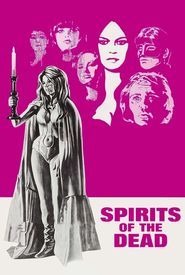Brigitte Anne-Marie Bardot, a renowned French former fashion model, actress, and singer, came into the world on September 28, 1934, marking the beginning of a life filled with artistic expression and international acclaim.
Before embarking on a career in the entertainment industry, Bardot had aspirations to become a professional ballet dancer, showcasing her early passion for the performing arts.
Bardot's acting career commenced in 1952, and over the course of the next several years, she went on to appear in a total of 16 films, ultimately gaining widespread recognition and acclaim for her role in her then-husband Roger Vadim's provocative and controversial film, And God Created Woman.
Brigitte Bardot's acting career continued to flourish as she appeared in Jean-Luc Godard's 1963 cult film, Contempt, a movie that would go on to be celebrated for its innovative storytelling and cinematography. This role marked a significant milestone in Bardot's career, earning her widespread critical acclaim and recognition.
In 1965, Bardot starred in Louis Malle's film, Viva Maria!, a production that would further solidify her status as a talented and captivating actress. Her performance in this film earned her a BAFTA Award nomination for Best Foreign Actress, a testament to her impressive range and versatility as a thespian.
Bardot's on-screen presence was not limited to her acting skills alone, as her charisma and charm seemed to captivate audiences worldwide. French intellectuals, in particular, took notice of her magnetic appeal, with philosopher and feminist Simone de Beauvoir devoting an entire essay to Bardot in her 1959 work, The Lolita Syndrome.
In this essay, Beauvoir portrays Bardot as a "locomotive of women's history," a phrase that highlights the significant impact Bardot had on the lives of women in post-war France. Beauvoir's words also suggest that Bardot was a trailblazer, a liberated woman who paved the way for future generations of women in the entertainment industry.
In many ways, Bardot's on-screen presence and off-screen persona embodied the spirit of liberation and freedom that defined the post-war era in France. As a cultural icon, Bardot's influence extended far beyond the realm of cinema, shaping the cultural landscape of France and beyond.
Brigitte Bardot's remarkable trajectory in the world of entertainment spanned multiple decades, during which she made a profound impact on the silver screen, stage, and music industry. Her extensive filmography boasts an impressive 47 titles, showcasing her versatility and range as a performer. Furthermore, she dazzled audiences with her captivating presence in numerous musical productions, solidifying her status as a triple threat in the entertainment world.
In addition to her on-screen and stage accomplishments, Bardot's melodious voice was featured on a staggering 80 songs, cementing her status as a talented vocalist. Her unparalleled contributions to the entertainment industry were eventually recognized with the esteemed Légion d'honneur in 1985, a prestigious honor that is considered one of the highest civilian awards in France.
As the curtain closed on her illustrious career in the entertainment industry in the year 1973, the incomparable Brigitte Bardot redirected her boundless energy and passion towards a new calling - animal rights activism.
Her post-entertainment years were marked by a tumultuous mix of controversy and public scrutiny, as her outspoken opinions on the topics of immigration, Islamization, and Islam in France sparked heated debates and garnered widespread attention.























































